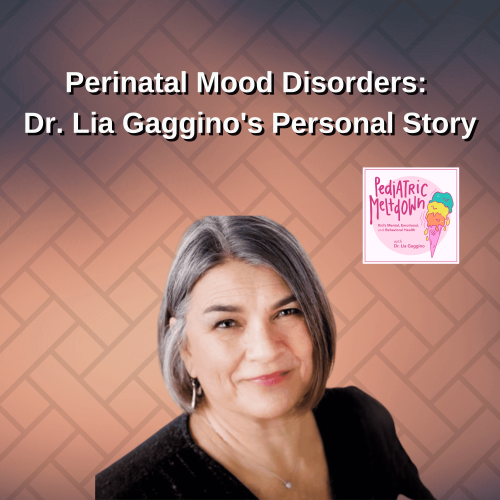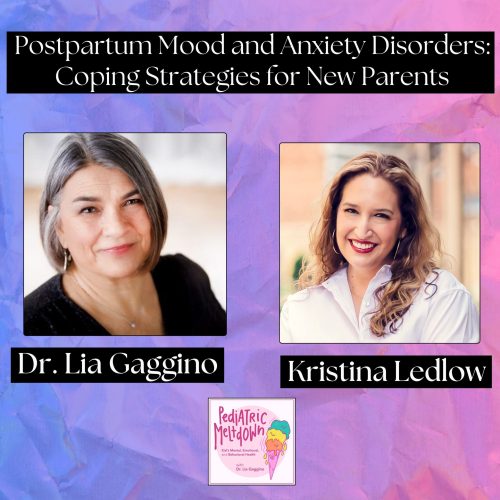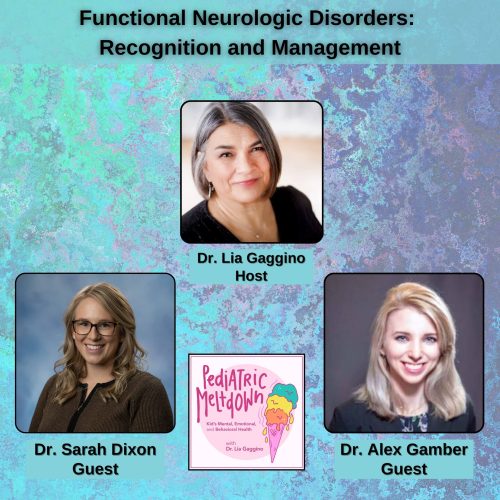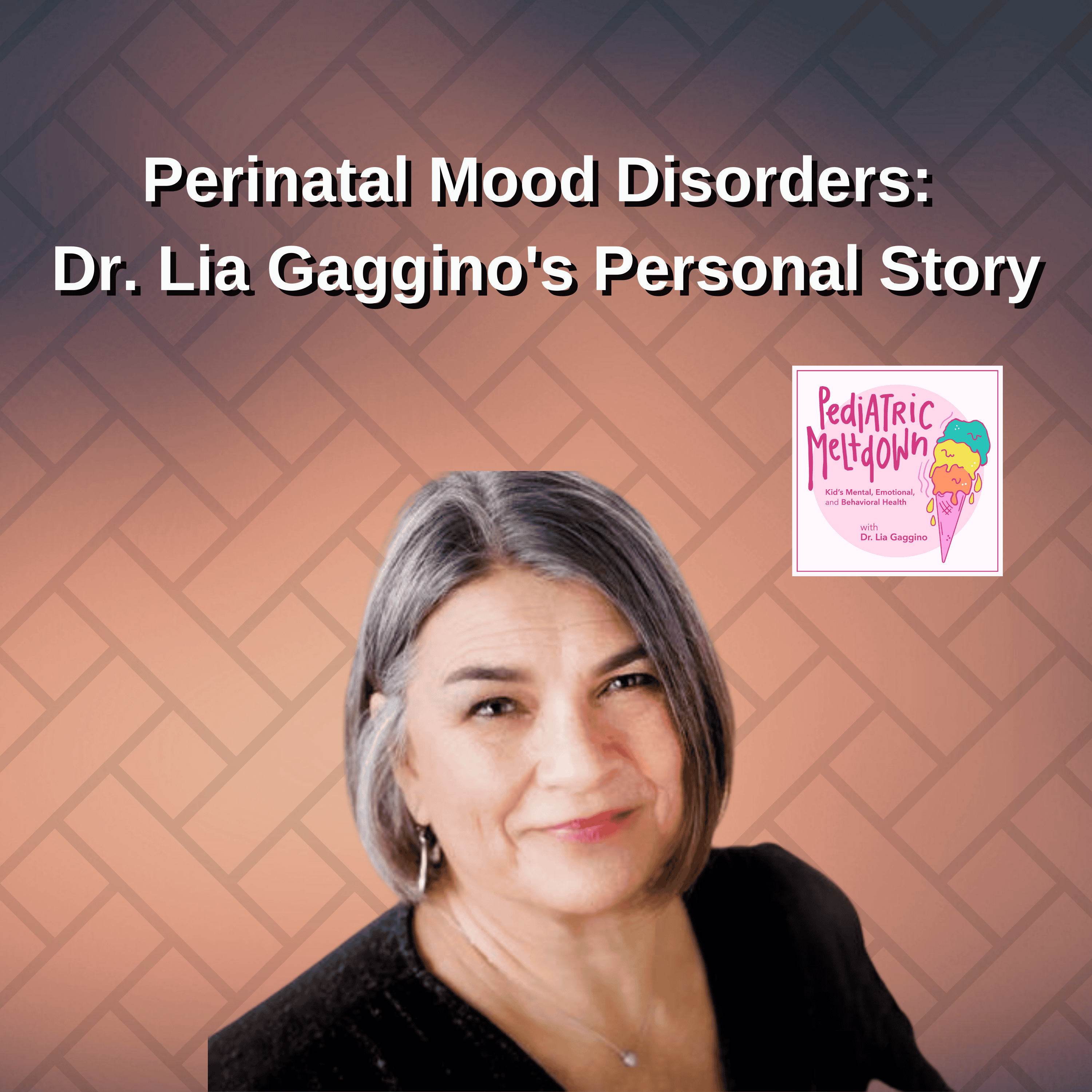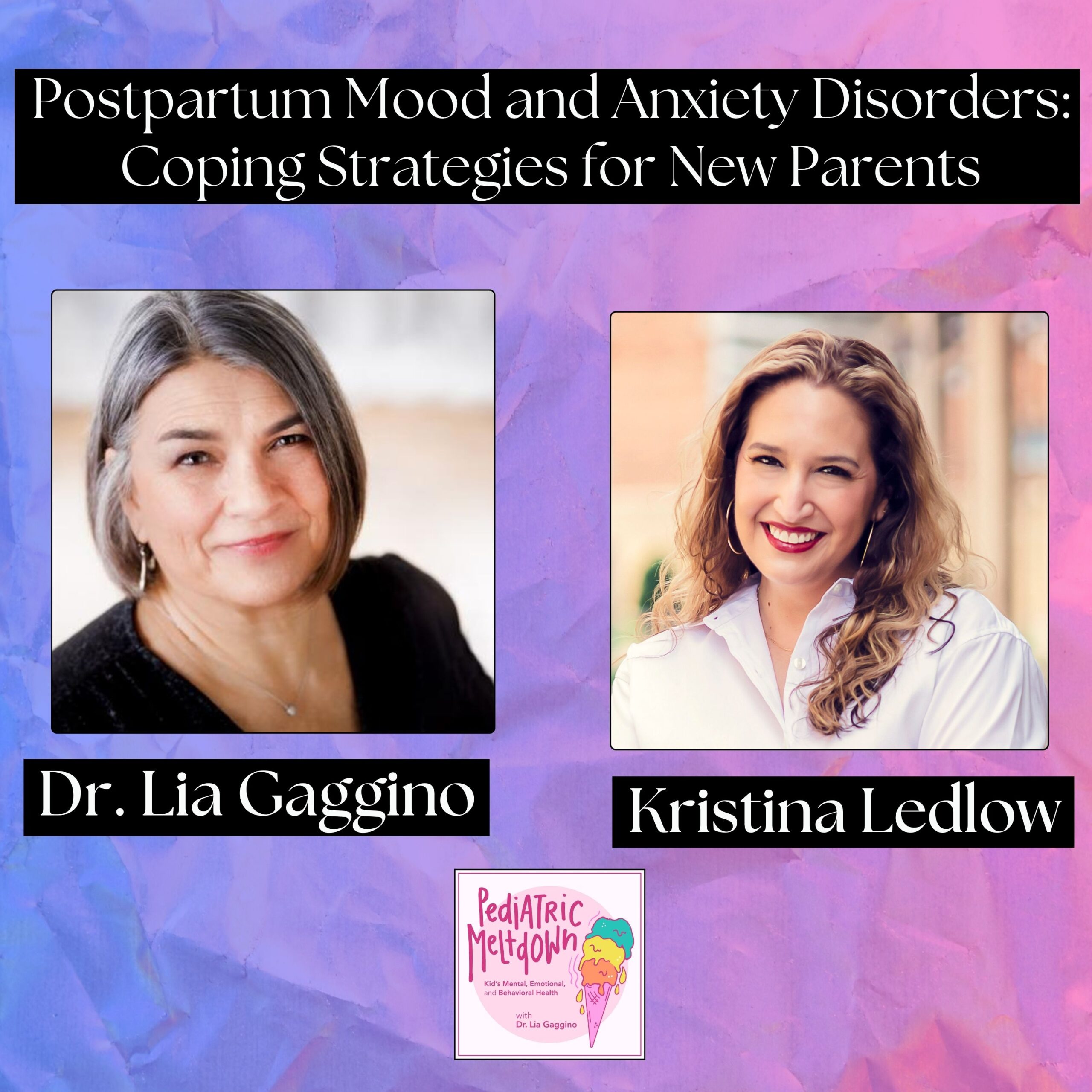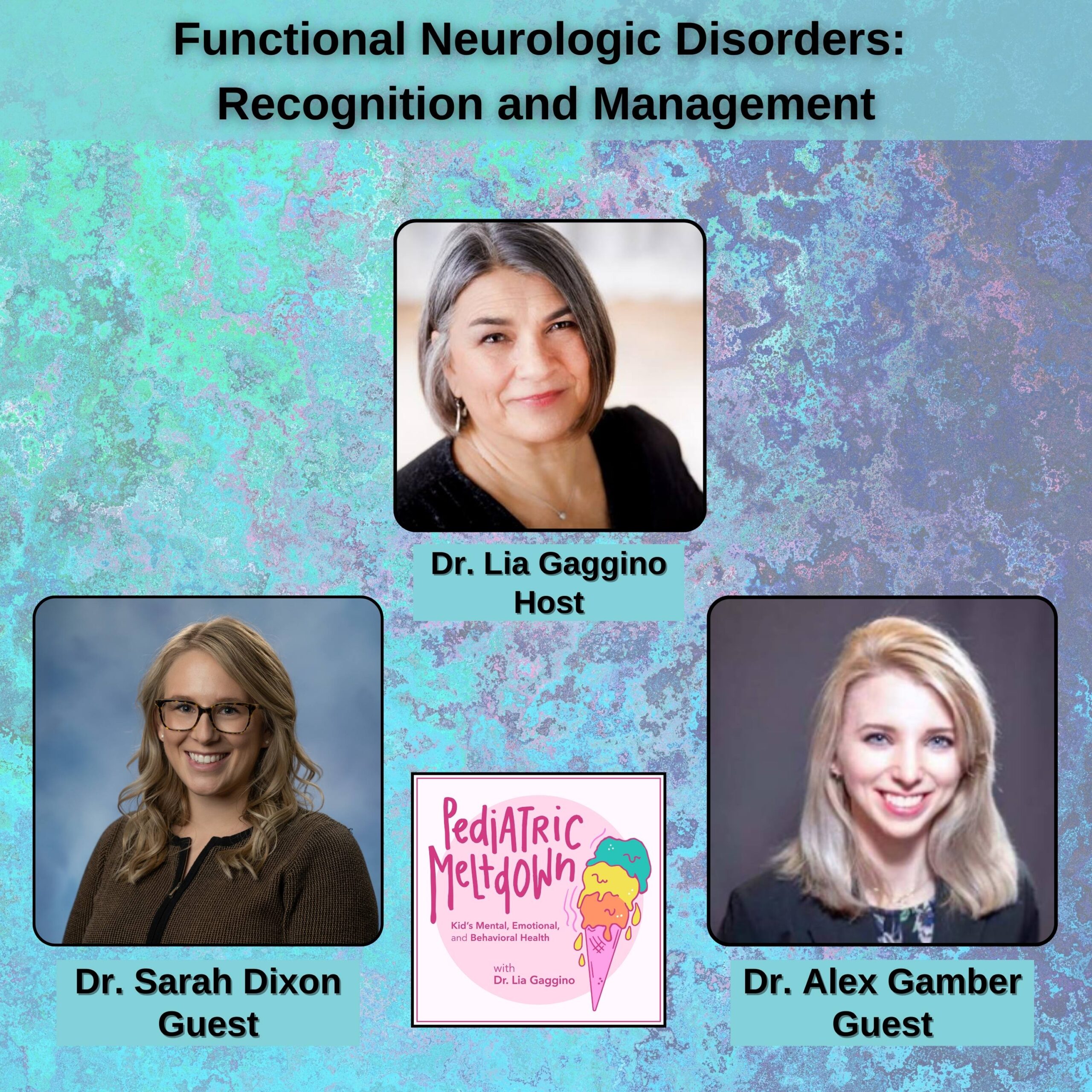Welcome to Pediatric Meltdown, the podcast where we discuss the unique challenges parents face when it comes to their child’s mental health. Host Dr. Lia Gaggino teams up with guest Dr. Cynthia Ewell-Foster to tackle the pressing issue of suicide prevention and support for families. Learn how parents can better navigate this challenging terrain as they uncover the importance of community engagement, clear communication, and empowering parents to implement discharge recommendations effectively. You’ll hear about the vital role of caregivers, the role of firearm safety, and the remarkable impact of a supportive network in times of crisis. It is crucial for parents to be vigilant and proactive when it comes to their child’s mental health. By utilizing the resources available, such as the toolkit provided by the Macomb County crisis center and participating in support groups like NAMI Washtenaw County parents group, parents can navigate the challenges with more confidence. Let’s take action, reduce stigma, and create a world where every child feels heard, supported, and loved. Together, we can make a difference and save lives.
TRIGGER WARNING: Please note that this episode contains a discussion of suicide, self-injurious behavior, depression and/or reference of other mental health disorders that may act as triggers.
[05:34 -15:13] Building Self-Efficacy and Capacity in Suicide Prevention
- communication between systems create a seamless environment for providing comprehensive care to at-risk children.
- initiatives should prioritize empowering parents, healthcare professionals, and stakeholders in suicide prevention.
- Suicide prevention requires a multi-system approach involving emergency departments, therapists, and pediatricians.
- Efforts should focus on building self-efficacy and capacity in different systems to address suicidal ideation in children.
[15:14 – 25:13] Cultivating Confidence and Empowerment within the Family Unit
- Provide clear directions and support to help families believe in themselves
- Encourage families to have confidence in their abilities to overcome challenges
- Offer resources and tools to assist families in achieving their goals
- Promote self-belief and resilience in families facing difficult situations
[25:14 – 37:25] Importance of Emotional Support for Parents After a Suicide Crisis
- Establish a network of trusted adults who can provide emotional support to parents on a regular basis.
- Encourage open communication and create a safe space for parents to express their feelings and concerns.
- Provide resources and information about coping strategies and self-care to help parents navigate the emotional aftermath.
- Offer professional counseling or therapy services to parents to address their own mental health needs.
[37:26 – 48:24] Strategies for Clinicians to Promote Safety and Mental Health
- Secure firearms or remove them from homes.
- Address medication safety and storage.
- Manage access to dangerous objects.
- Help patients connect with mental health professionals.
[48:25 – 57:27] Closing segment Takeaway
Links to resources mentioned on the show
Holding On To Life Toolkit:
NAMI support group:
Youth Nominated Support Team:
King, C.A., Arango, A., Kramer, A., Busby, D., Czyz, E., Ewell Foster, C., & Gillespie, B.W. (2019). Association of the Youth-Nominated Support Team Intervention for Suicidal Adolescents With 11- to 14-Year Mortality Outcomes: Secondary Analysis of a Randomized Clinical Trial. JAMA Psychiatry, 76(5), 492-498.
Worsening Symptoms of Anxiety, Depression, and Sleep Problems in Caregivers Following Youth’s Suicide-Related Emergency Department Visit:
Denise Ullem Blog:
(
)
Predictors of Parent Behavioral Engagement in Youth Suicide Discharge Recommendations: Implications for Family‐Centered Crisis Interventions:
Other episodes you may like:
Ep 159 Youth Suicide Prevention: Safety Planning and Lethal Means Safety Counseling
Ep. 158 Preventing Youth Suicide: Risk Assessment and Management
Ep. 96 AAP Blueprint for Youth Suicide Prevention: A Roadmap
Ep. 08 Screening Youth For Suicide Risk: Can it be done in a busy pediatric practice?
Key quotes for Twitter:
“And one of the things that we learned was just what you were mentioning that parents were coming into the emergency room, with expectations about what was gonna happen that were very different than what we thought we were going to do for their families.”… Dr. Cynthia Ewell-Foster
“Getting out in front of that and setting appropriate expectations, increases people’s self efficacy.” … Dr. Cynthia Ewell-Foster on building self efficacy for mental health
THANK YOU FOR YOUR SUPPORT!
Pediatric Meltdown was listed as
.
If you’d like to connect with me, you can Tap the “What Are Your Thoughts” button at the top of the notes or you can find me on
, , Instagram, and , or email me at [email protected] or [email protected]. To learn more about me visit
LOVE WHAT YOU HEARD? Leave us a 5-star review so we can continue to provide you with great content. Share this episode and help people know more about children’s health and well-being.



